How Online Groups use Social Media to Hunt Down Paedophiles
Are online activist groups who hunt down and expose paedophiles helping the community or stopping police from being able to do their job?

Kate* was 15 when she was sexually abused by a 22 year old man, and she was not the first young girl he had abused.
Kurt May, 22, was found guilty of three accounts of sexual activity with a child and causing or inciting a child to engage in sexual activity on May 2017 at Newcastle Crown Court.
Kate recalls meeting her abuser whilst out with some friends when she was 14. "He told me he was 17. He seemed casual and like a nice person so I thought nothing bad about it." Over a year, Kurt would message Kate on social media and talk to her whilst out in a group of friends. Kate described herself as quite shy and those around Kate noticed that Kurt realised this and went out of his way to make Kate, and other young girls feel more comfortable around him. "I lowered by guard around him." Kate explained.
In 2016 Kate had arranged to meet a friend at Sunderland's Gay Pride event however, when they failed to turn up Kurt stepped up and offered to spend the day with Kate. "Kurt stepped in, he saw how hurt I was because I was left behind and to me that's when he saw my vulnerability."
"He took me to meet up with people I had never met before and we all drank. From there it's all a blur. I was not aware of my surroundings, I remember my vision being blurry and sometimes going black... Next thing I know I've woken up naked and aching all over."
Kate woke up sore and naked and her phone had been taken off her and turned off. She demanded for her phone back and when she switched it on she was presented with a glaring phone screen showing it was 4am. Pretty much straight away Kate receives a phone call from the police after her mother had reported her missing. Kate remembers Kurt telling her not to say anything about last night although she could not remember anything.
Kate described the pain as being sore, she was unable to sit down once she got home. "I was a virgin" she explains.
Once home, Kate says her mother knew something was wrong and when she checked herself over she found wounds on her body.
It wasn't until after the abuse that Kate found out Kurt was 22 years old, and she was not the only girl he had taken advantage of.
Kate, May was found guilty of prior offences of grooming a 13 year old girl for sex over the course of three months. He admitted to taking her back to the home of an adult with learning disabilities and carrying out sexual acts on her.
Whilst on bail Kurt continued to message young school girls, threatening to "hurt himself" if the girl did not carry out a number of sex acts to "make him happy."
In an online chat May was found to have expressed his belief that any girl over the age of 12 would be "fair game" to have sex with. Judge Rippon, addressed the the family of one of the young girls families, "I hope your daughter gets better."
"She is obviously very brave in what she has done, standing up for herself and coming forward."
Jamie Adams, May's defence, claimed that May "is not a sexual predator," arguing his actions were a result of his upbringing, lack of parental support and his immaturity.
*Names have been changed in this article for privacy.
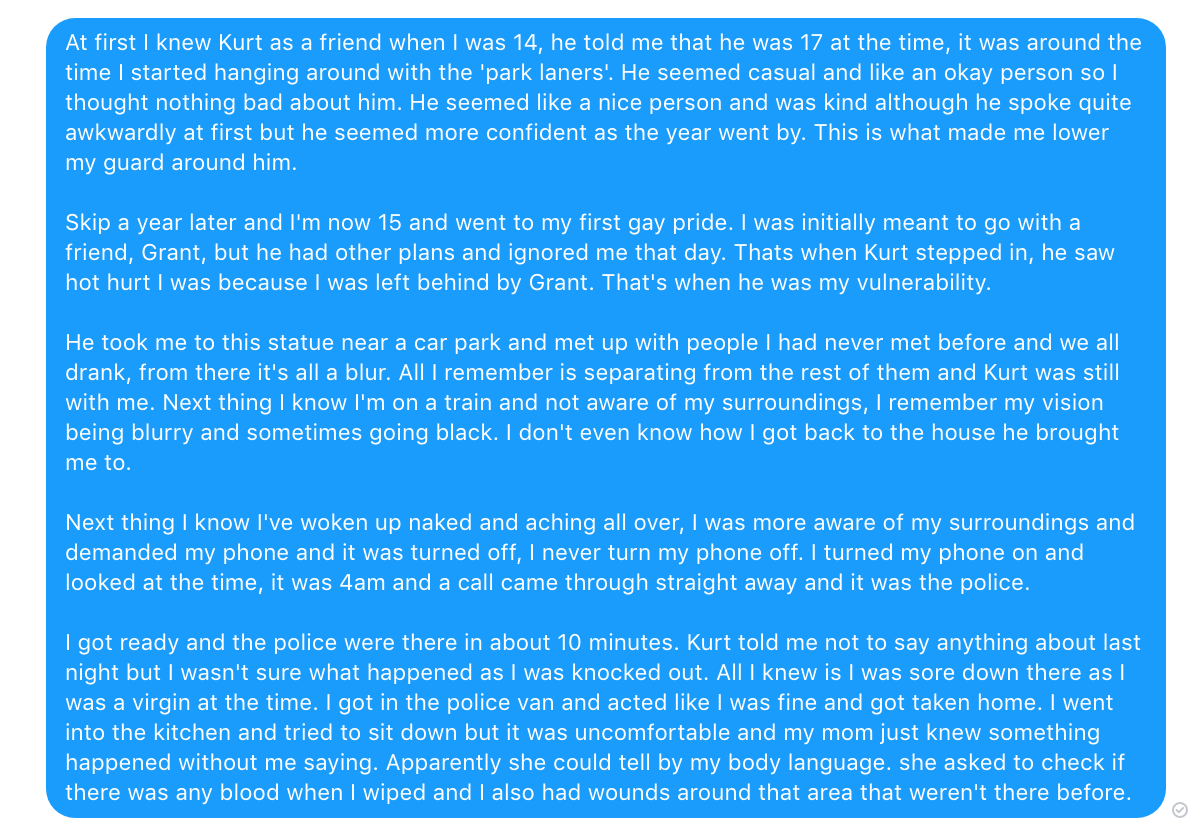
Although, for Kate, her abuser was convicted, for many young children this is not the case. Based on research carried out by NSPCC on 2,275 young children aged 11 - 17, suggest that around 1 in 20 children in the UK are sexually abused - with not all children coming forward about their abuse.
The NSPCC also found that 16% of sexual offences towards children involved an online element. From October 2017 to September 2018, there were 9,534 recorded child sexual offences that were considered 'online crimes'.
With advances in technology, people now have more access to online content and social media from a younger age. Peter Wanless, NSPCC chief executive, said "children are being groomed and abused on their platforms every single day." He urges the government to 'get tough on tech firms' to help prevent abuse from taking place.
Whilst Wanless says that the NSPCC have taken strong action to tackle this "vile abuse" by developing tools to identify and block grooming conversations, there is still a lot to be done to combat online predators.
Some members of the public have noticed there is a threat to young children online and have formed groups that hunt down potential offenders. These groups can be found on most social media sites and identify as child protection groups. Most of the groups operate in a similar way. They create fake social media accounts pretending to be young children. If they are messaged by older men or women in a sexual way they will then arrange a sting to confront the offender and expose them on social media sites.
Guardians of the North
Guardians of the North are an online group operating in Sunderland who create 'decoy' accounts to track down predators and carry out a citizens arrest. The group exposes paedophiles on their social media page and their website.
The group, founded in 2016, has now made 300 suspected arrests and their actions have led to 180 successful convictions. Each ongoing and closed case the group has been involved in can be found on their website.
The groups Facebook page, which has a following of 138,275 people and 127,673 likes, regularly posts local predators successfully convicted through evidence provided by themselves and other organisations. The group also regularly shares journalistic content relating to child grooming and predator behaviour.
Their online presence is met with a range of support and criticism from locals. The group openly address any opposition or criticising messages they receive that insult or accuse the group of wrongful behaviour; and are often met with positive and supportive comments from their thousands of followers.
Joe Jones and Joe Jones Jr, members of Guardians of the North discuss how online groups, such as themselves, utilise social media to track down predators that approach children through social media.
Joe Jones founded Guardians of the North in April 2016 with his eldest son, Joe Jones Jr. Mr Jones revealed that the group came about after his youngest son was contacted by an older male online. When they had taken the matter to the police they were told that “the male who contacted our son had not broken the law however, as a parent you know when certain questions that are asked are a little suspicious and uncanny.”
The group currently consists of five members who each have multiple decoy accounts across social media platforms. Although Mr Jones was not prepared to give information regarding what social media platforms the group currently uses, he said that if a child can access a social media platform “then so can we.” Members of Guardians of the North operate from Sunderland but they apprehend offenders all over the UK. Joe Jones described Guardians of the North as:
“A team of volunteers who create online profiles across social media platforms to attempt to apprehend online groomers and paedophiles.”
Online groups such as Guardians of the North are often referred to as vigilante groups. Jones stated that “The dictionary states that vigilantes are as follows: a member of a self-appointed group of citizens who undertake law enforcement in their community without legal authority, typically because the legal agencies are thought to be inadequate. However, that is not the view we have on ourselves."
"We do not believe that the police are inadequate but they don’t have the resources to be actively online everyday speaking to the predators.”
When asked about cooperation with the police Mr Jones said that the group “can’t operate alongside the police as they have stricter guidelines they have to follow.” Jones also stated whilst some police forces seem to support what they do more than others. As a whole they can’t say whether the police force supports their group.
Although they can’t work alongside the police, Jones said that they hand over all the evidence they gather over to the police after confronting a potential offender. When asked what Guardians of the North do to ensure that the suspect is in fact a predator and is held fully accountable for their actions Mr Jones responded “We determine if somebody is a predator as soon as they show they are ok with our ‘decoys’ age and then carry on to talk sexually to the decoy.”
“We would never hand in any information on a predator without knowing 100% that we had enough grounds for a conviction and that the person is who they say they are. We conduct different searches like address searches and photo reverse searches to make sure the names and faces add up. We will then travel to said address and observe the person inside to ensure we have the correct address.”
Mr Jones claims the group has never wrongfully accused somebody of being guilty and always waits until after a conviction before posting any information on a predator. This is to ensure they protect their court cases. After a successful conviction he will then post the video of the group confronting the offender onto social media. Jones said the videos are posted for awareness.
“We believe families and the local community should be aware of who they live near so they can keep children and families safe.”
These videos are always posted even if the offender is in jail and no longer has a current threat within the community. Jones said that the group also goes to the press as well as posting online, “that way the younger generation can see it online and the older generation, that do not use social media, can see it in the local papers.”
When asked what he thinks can be done to make social media a safer place for young children, Jones said; “Social media platforms should be restricted to ages 16+ and so that guidelines should be met, social media sites should require identification that can be provided online.” Jones also stated:
“Social media and internet access have made it both easier for predators to approach children and it has also made it easier for us to apprehend a predator.
Social media gives predators a way to hide their true identity by creating fake profiles to contact children, whereas if they did not have access to the internet they would have to leave their homes to commit such crimes and would be unable to hide their identity.
However, it also makes it easier for us to track these predators as they leave a digital footprint which 9 times out of 10 leads us back to the predators real identity.”
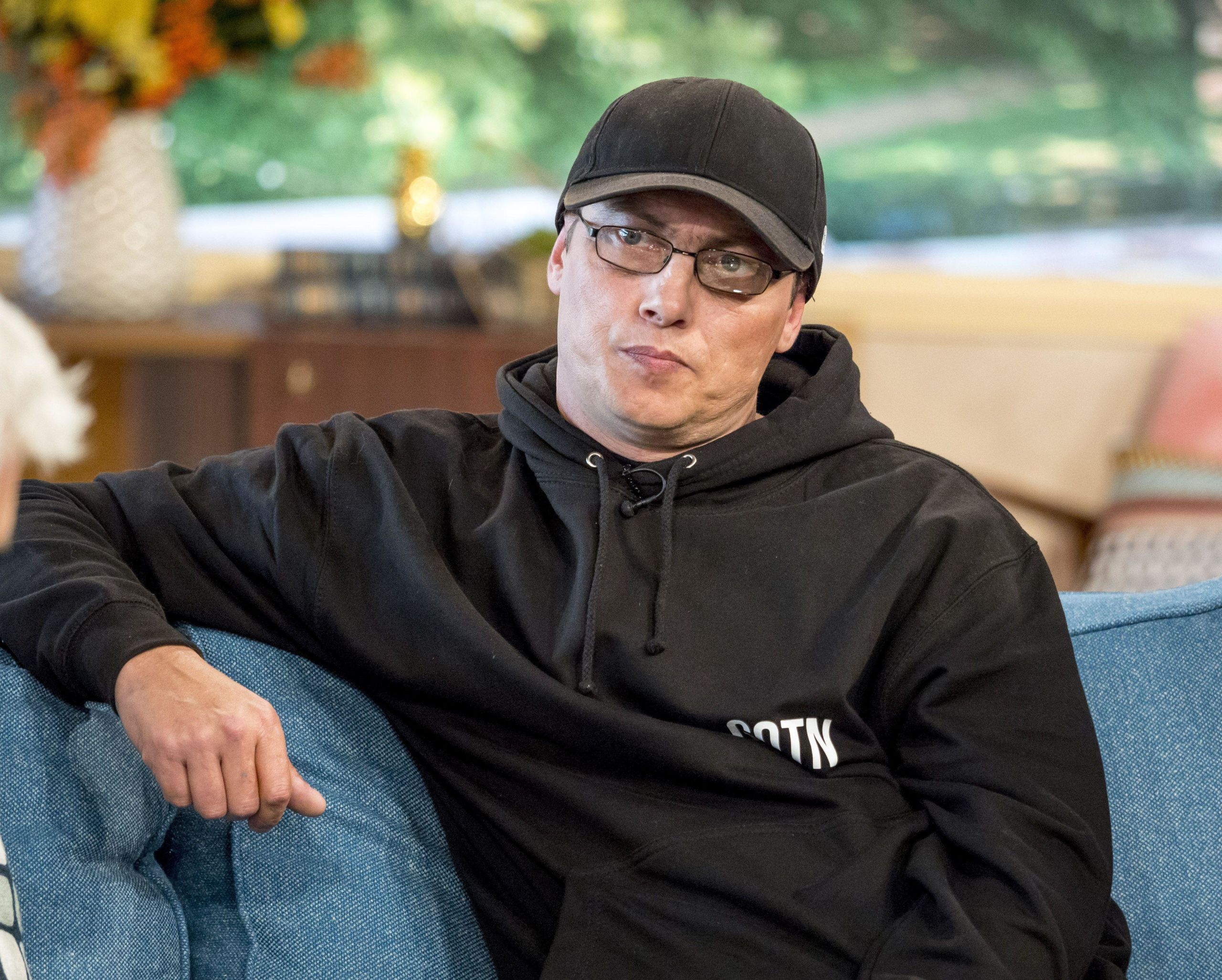
Joe Jones. Founder of Guardians of the North. Photograph taken from This Morning, ITV.
Joe Jones. Founder of Guardians of the North. Photograph taken from This Morning, ITV.
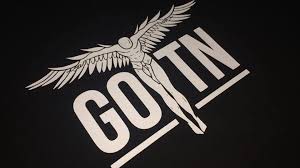
Photograph taken from Guardians of the North Facebook page
Photograph taken from Guardians of the North Facebook page
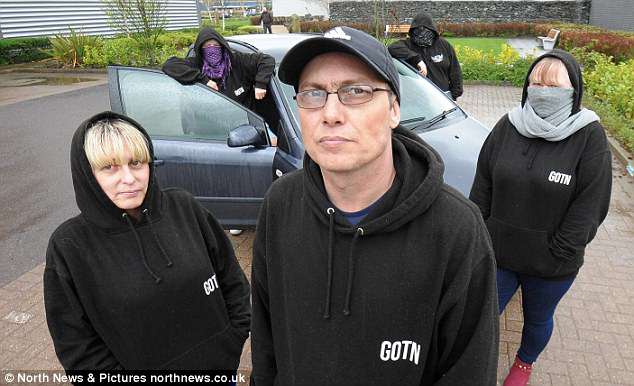
Guardians of the North. Photograph taken from Daily Mail.
Guardians of the North. Photograph taken from Daily Mail.
Jones revealed during the interview that members of the group will go as far as the law allows to catch online predators. In a previous interview for North East newspaper, The Metro, Jones said “We get sent indecent images. I shouldn’t have indecent images in my mind. I see images that I should never have seen in my life.” In January 2019 Jones and other Guardians of the North were featured in a BBC three documentary called ‘Pedophile Hunters: Rise of the Vigilante’s.’ In this documentary a member of Guardians of the North shows Haydock a shocking photograph of a naked child which was sent to one of the decoy accounts.
Whilst this is evidence that can be used to convict the 56 year old man who sent the images to the decoy account; it provokes the question is it an offence for Guardians of the North to have access to those photographs? Whilst the group does not look at these images and messages for sexual pleasure, they still have access to look and share the inappropriate content.
Later in the documentary we see an organised sting go wrong. A member of ‘Guardians of the North’ is recorded arriving at a potential offenders house, revealing he has evidence of the man speaking to children online and he is under citizen’s arrest.
Offscreen the man faints and BBC journalist Livvy Haydock phones an ambulance for the suspected offender. Joe Jones said that the group has “never” made a mistake when approaching a suspected predator however, events such as this can be seen as a mistake or a badly handled situation. Haydock herself later admitted the paedophile hunters did not leave a good impression on her.
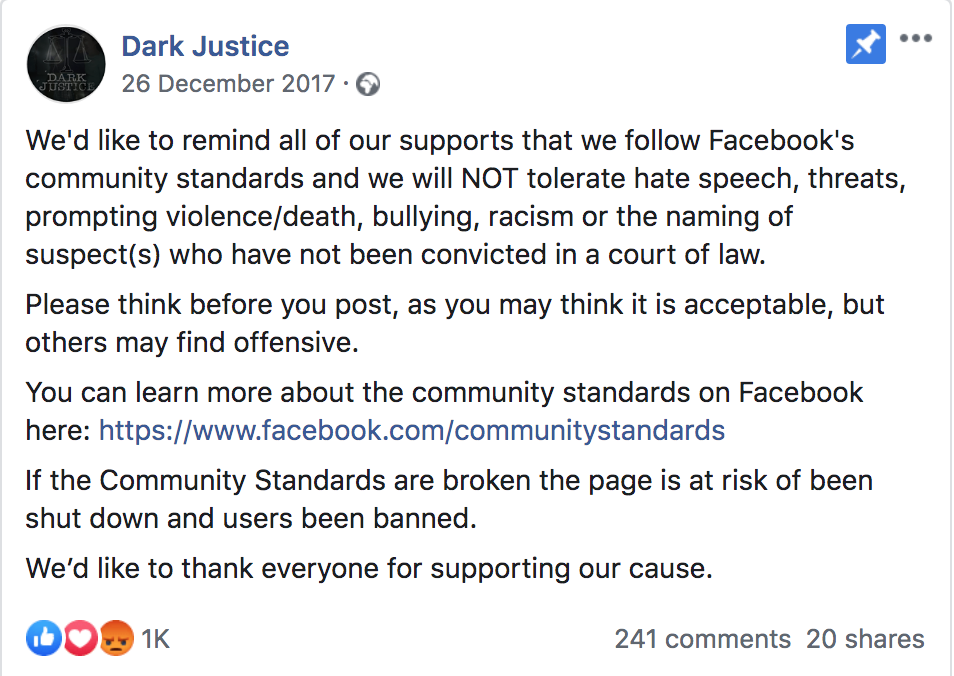
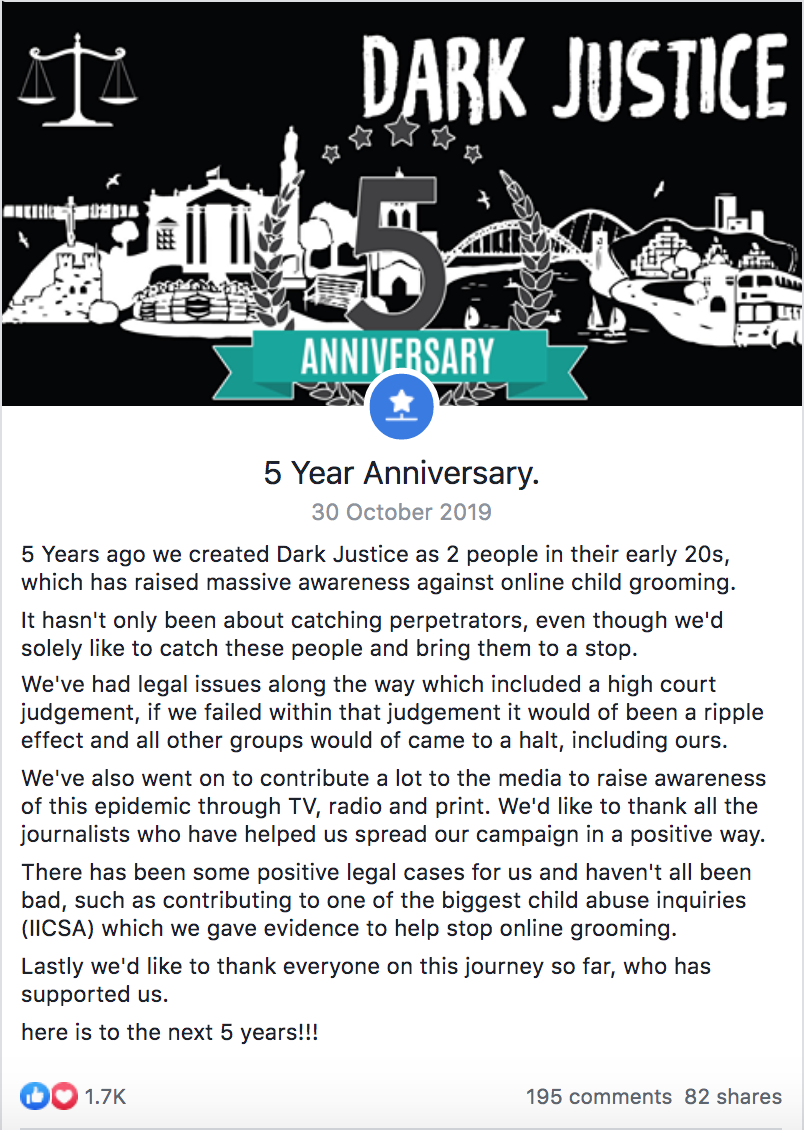
Dark Justice
Dark Justice is another online group based in the North East of England who set up fake profiles to catch online predators. Upon initial contact Dark Justice agreed to an interview via email to remain completely anonymous however, after receiving the interview questions, failed to respond.
The group’s website and social media gives information about their organisation for the public. The group is ran by two men from Newcastle who have never revealed their identities. Similarly to other groups, they create fake accounts provided by photographs of volunteers and wait for older men or women to initiate a conversation.
‘Dark Justice’ claim to have discovered 230 potential sex offenders. 108 of those found by Dark Justice were convicted sex offenders, and 55 of the convicted offenders received a custodial sentence.
A statement found on the group’s website reads:
“We never approach anyone first, we set up a profile and wait for messages. Straight away we tell them we are underage.”
The group claims they avoid sexually explicit conversations with potential offenders and “act young and uneducated.”
When the predator suggests meeting the group will then arrange the date and time to ensure they will be able to safely control how the meeting goes. Once the team spots the person they have been messaging they ring the police and confront the potential offender, recording the whole encounter.
They will perform a citizen’s arrest and wait until the police arrive to hand over any evidence they have on the suspected offender.
The group has been accused of entrapment tactics in the past by online predators and concerned citizens however the two men running Dark justice deny all claims. “At the end of the day, these people come to us. These people make it sexual and ask to meet.”
In 2017 Dark Justice was taken to court by two men caught by one of the groups decoy accounts. The defence argues that online groups, hunting down online predators, should be monitored by the RIPDA (Regulations of Investigatory Powers Act) of 2000. However, the judge ruled that Dark Justice acted as private citizens and they did not need authorization from the law to act out covert operations.
Previous chief Constable of Durham police force, Michael Barton, who is now retired, spoke out saying that whilst there remains an argument that Dark Justice do not act in the public interest to reduce crime but help to create it where it might not have otherwise occurred.
Similarly to other groups online who track down paedophiles, Dark Justice claims that they do not entrap individuals and they are not a vigilante group.
“A vigilante is a person who takes the law into their own hands and punishes people. We’ve never once handed out punishment.”
Whilst Dark Justice are unable to hand out any physical punishment, members of the public disagree. Members of the public have accused Dark Justice for mentally punishing these people and their families by posting the confrontational videos on social media.
Predator Exposure
‘Predator Exposure’ are another group, based in Leeds, who have made headlines recently regarding their methods of online paedophile hunting. In 2019 Yorkshire Police took the group to court after charging several members for false imprisonment and common assault.
Members of the group Jordan Plain, Dean Walls, Kelly Meadows and James Roberts were charged with false imprisonment and common assault. The charges were based on the group members approaching, verbally assaulting and using unnecessary force. Allegedly by putting two suspected predators into headlocks and dragging them whilst on a sting.
The group was denied charges and the four members were found not guilty on 30th October 2019.
‘Predator Exposure’ started up in 2016 and is made up of 14 members who live around the Leeds area. However, the group claims its members travel all around the UK to catch the sex offenders they track down. Unlike Guardians of the North and Dark Justice, this group exposes potential offenders on the day they confront them. They claim this is to prevent predators from being able to ‘re-offend’ however, does not give the accused a chance to defend themselves.
The group has caught 30 predators up to date and their statement reads: “We expose predators online and we will publish it on all social media sites whether this is on our YouTube channel or whether it is on Instagram, we want to ensure that all public know who could possibly be living in their area.”
Whilst the group does not have a website, it’s Facebook page is updated regularly with videos of the group confronting people they have accused of being a predator and photographs and articles of convicted offenders in the area.
When asked to make a statement or participate in an interview on the group, they stated they “are a Self- Styled Child Protection Team, not vigilantes’ and failed to respond any further. However, in previous interviews founder of the group, Phillip Hoban, has expressed his opinion on how the police are inadequate and that is why ‘Predator Exposure’ was formed.
“Go out and do your job so we don’t have to.”
“If we can catch them why can’t they catch them?
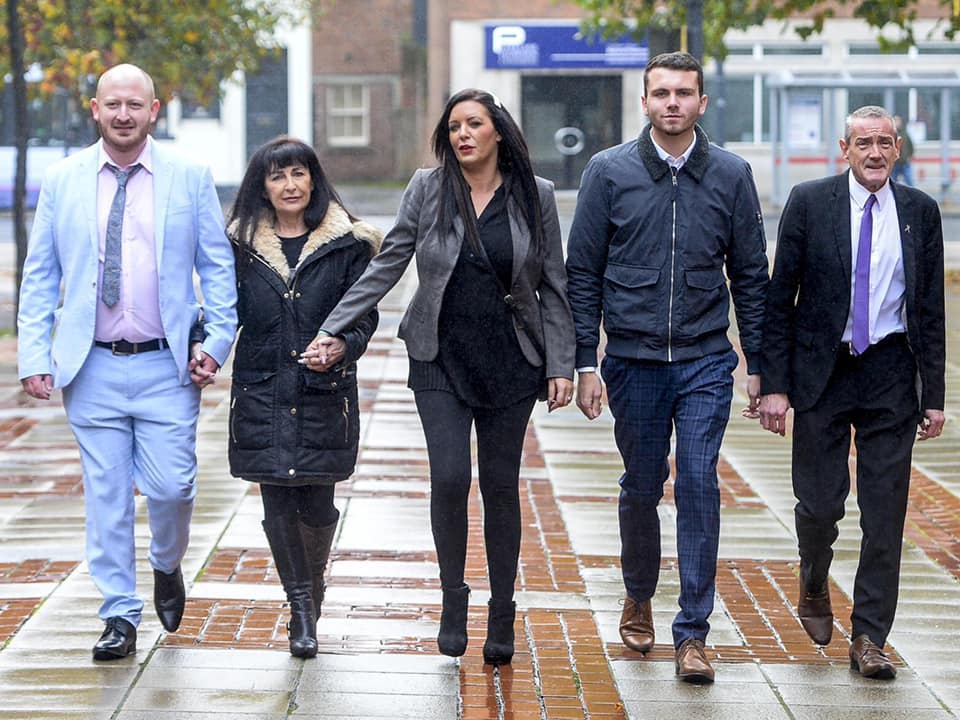
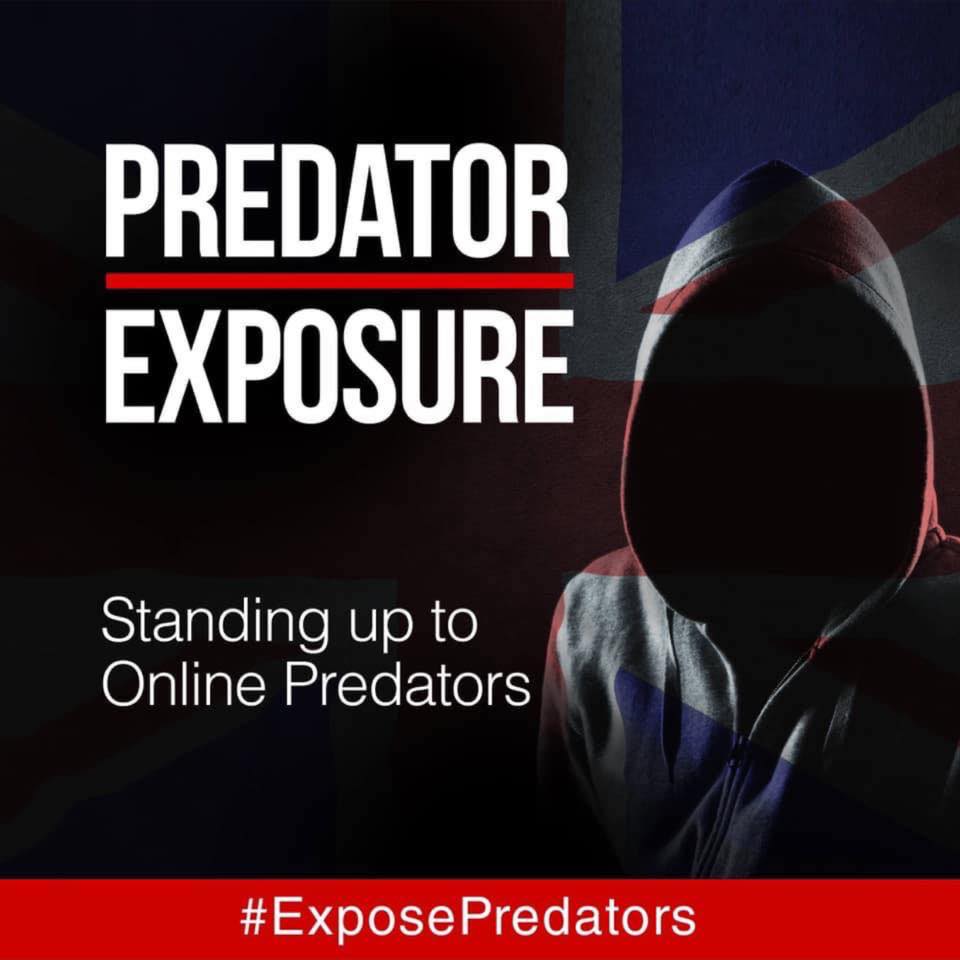
Police response to online paedophile hunters
The Assistant Chief Constable, Dan Vajzovic, who is the National Police Chief’s lead for online child abuse activist groups, Regional organised crime unit and Counter Terrorism Policing, has openly stated
“Overall the activity of these groups is not 100% positive.”
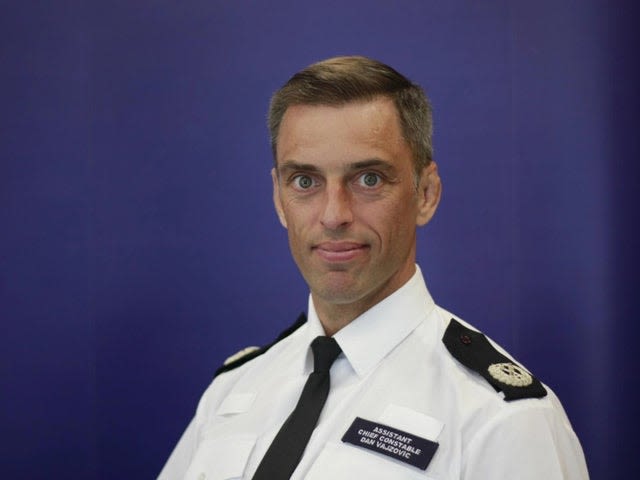
Dan Vajzovic. Photograph from Cambridgeshire Police
Dan Vajzovic. Photograph from Cambridgeshire Police
Dan Vajzovic says that online pedophile hunting groups often exceed the boundaries of the law” and “Act out of their own interest and desire to exercise force against so-called perpetrators of child abuse.” He believes these activist groups do not don’t consider measures to safeguard children “they’re more interested in putting a video online for them to carry out a sting."
Whilst Mr Vajzovic acknowledges more prosecutions have been brought about due to evidence provided by online activist groups, every month UK law enforcement arrest more than 500 suspected child abusers. The work carried out by activist groups can involve “extortion, blackmail and exhibiting violence against those they are targeting.” Activist groups hunting down offenders and creating confrontations can also “divert police resources from more significant offenders.”
Mr Vajzovic said that those wanting to put an end to child abuse should become a constable themselves or a police volunteer to approach the problem in the correct, lawful way.
"Some of the activities we've seen them carry out have resulted in people with mental health issues and other learning difficulties being targeted." Vajzovic stated, expressing his belief that paedophile hunters should be more weary of their actions.
In 2018 police were ordered to 'hunt the paedophile hunters' after there was an increase in suicides from those confronted by online activist groups.
In the last 6 years at least 8 men in the UK have committed suicide after being confronted by online activist groups and accused of being a paedophile. Amongst them was 67 year old father, Michael Duff.
Duff was confronted by 'True Justice', a group based in Wallsend. The group accused Duff of attempting to meet up with a 15 year old girl for sex - posting the video online. Duff committed suicide shortly after the video went viral.
Duff's daughter spoke out, telling the BBC; "this could have been a one - off thing."
"The reality is he may not have actually committed any crime at all."
Lesley Duff, Michaels daughter claims she did not think her father would do such a thing; but nobody will never know now. He did not get the chance to explain himself before he was publicly labelled as a paedophile by 'True Justice'.
"I'm never going to know because somebody deemed to put it all over Facebook rather than letting the police deal with it."
True Justice deleted its online presence after the tragic event. Dark Justice, Newcastle based online group, spoke out about the issue making a statement to say there were in no way connected to the event after members of the public confused their group with True Justice.
Dark Justice explained they take into account safeguarding before confronting people and that their group would not make the same mistake.
In 2018 a group called 'Protecting the Innocent' wrongfully accused a man of messaging a young girl. The group recorded the encounter and posted it to their Facebook page, which at the the time had a following of over 26,000 people.
The group later found out they had accused the wrong man and posted a public apology stating:
"We profusely apologise for all inconveniences and distress caused during this time, and if we can assist you in any way please let us know and we will work with you to right this horrible wrong."
Advice given by the College of Policing, National Police Child Protection and Abuse Investigation and Management of Sex Or Violent Offenders groups states that "vigilante activity carries high risk."
Guidance provided by these organisations reads:
"There is no way of ensuring that vigilante groups will target their activity accurately against online paedophile activity. The wrong people may be 'exposed' or their privacy invaded."
The risk to individuals who are 'exposed' in this way - whether accurately or not - from themselves or others is generally not anticipated, assessed or cared about."
The wellbeing of those accused by online groups is often not taken into account and by posting videos of them online, these groups have the potential to seriously harm people's mental wellbeing.
There is a conflict between whether online groups are doing right by working to protect children; or whether they are doing wrong by entrapping and confronting potentially vulnerable adults.
Whilst police attempt to deter online groups from carrying out investigations and stings, their use of social media to catch predators is within the law. Therefore online groups can and, most likely, will continue to track down and expose predators online to 'protect their local community'.
Regardless of the work of these groups, paedophiles are continuing to reach out to young children online. Therefore it is important for adults and children to become aware of the dangers of social media to protect children whilst offenders are being 'hunted down'.
Police and child protection organisations regularly release information for parents and children regarding online safeguarding. Parents and children are encouraged to be open about the dangers of social media and to inform children from a young age not to talk to strangers.
If parents are concerned about their child's safety online, regardless of the presence of local activist groups, information provided by the following websites show what signs to look out for and what you can do to safeguard your child online.
https://edu.gcfglobal.org/en/internetsafetyforkids/staying-safe-from-online-predators/1/
